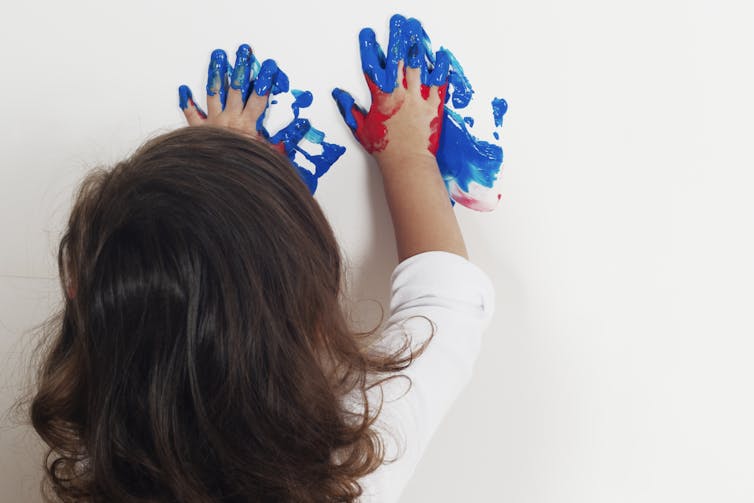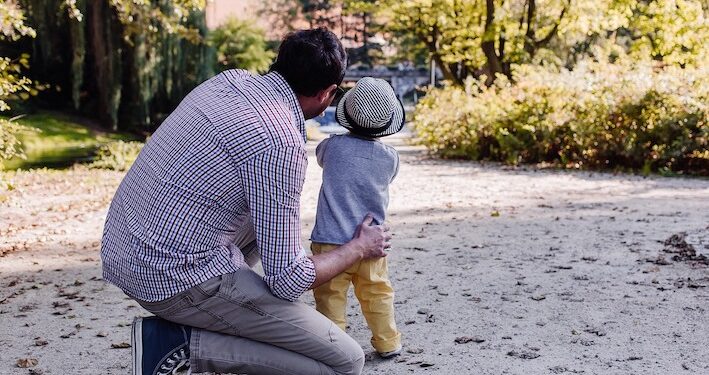Elizabeth Westrupp, Deakin University
Hearing about child abuse in trusted places such as childcare centres is every parent’s worst nightmare.
So, how can we talk to our kids about it and help them stay safe?
While it’s not always possible to prevent abuse – and it’s never the victim’s responsibility – there are practical, age-appropriate ways to help children trust their instincts and feel confident to speak up.
These conversations don’t have to be frightening. They’re about teaching kids body safety, boundaries and trust in a calm, shame-free way.
Here’s what parents and carers can do right now and some resources that might help.
Use real names for body parts
Many of us grew up in families where private parts were given nicknames or not mentioned at all. Basic body functions were treated as embarrassing or joked about. But when we flinch or make jokes, we teach our children these topics shouldn’t be spoken about.
Instead, we need to speak about bodies in a clear, matter-of-fact way.
Research shows one of the simplest and most effective protective factors for children is teaching them correct names for their genitals – penis, vulva, vagina, anus, bottom – without shame or secrecy.
Using the right words gives children the language to ask questions and tell a trusted adult if something feels wrong.
We can use everyday moments, such as bath time or getting dressed, to weave these words in. While your child is in the bath you might say: “Have you cleaned your vulva/penis? This is your special area and it’s up to you to look after it.”
It’s also important to explain, in simple terms, that some things are just for adults. This isn’t about making the topic scary, but about setting safe boundaries: “Sex is for grown-ups. It’s not for children, and it’s never OK for an adult or another child to involve you in anything like that.”
If you’re unsure how to begin, children’s books about bodies and private parts can help start the conversation. Here are some of my favourites, for toddlers up to late primary school:
- My Underpants Rule (for toddlers and preschoolers)
- The Amazing True Story of How Babies Are Made (for toddlers and preschoolers)
- Respect, Consent, Boundaries and Being in Charge of You (for primary school children)
- Welcome to Consent (for primary school children)
- Let’s Talk About Body Boundaries Consent & Respect (for preschoolers and primary school children)
- Welcome to Your Period (for pre-adolescent children).

Respect their ‘no’
Children are often taught to be polite and do as they’re told. While manners matter, this can sometimes teach children not to trust their own instincts.
It’s vital for children to know they are in charge of their own bodies: they get to decide what happens to them.
This means they never have to hug, kiss or touch anyone if they don’t want to, not even close family members. As parents, this can feel socially awkward. But we can help by offering alternatives, such as high five, a wave or just saying hello.
When we respect children saying “no” to safe adults, we reinforce that their boundaries matter and they always have a right to speak up.
Trusting our children helps them learn to trust themselves.
Encourage them to listen to their in-built sense when something isn’t right – an “uh-oh” feeling in their tummy. Let them know: “If someone ever makes you feel weird or yucky inside, you can always tell me, even if someone tells you not to. I’ll always listen and believe you.”
This helps build the confidence to speak up if something doesn’t feel right, whether it’s with another child on a play date, an adult at school, or even a date when they’re older.
Most importantly, it sends the message that adults will listen, believe and protect them.
Secrets vs surprises
From a young age, children can understand safe grown-ups don’t ask them to keep secrets.
It’s helpful to explain the difference between a secret and a surprise.
Surprises are fun and temporary, like hiding a birthday present, and are always revealed.
Secrets are about hiding something for a long time, and can make people feel scared or sad. You might say: “You can tell me anything. You won’t get in trouble, even if an adult says it’s a secret.”
How to listen and what to look for
Sometimes children can’t find the words or feel too scared to speak up. They might not fully understand what happened until they’re older.
One of the most protective things you can do is remind your child it’s never too late to tell you if something’s worrying them. If they raise something from the past, stay calm, listen and thank them for trusting you.
If your child ever discloses something distressing:
- take a deep breath before you respond
- let them know you believe them
- avoid asking lots of detailed questions and just listen.
Seek professional help if needed. This might mean talking to your GP, calling a child protection helpline or speaking to a trusted mental health professional.
Not all children will disclose abuse directly. Look for sudden changes in behaviouror language that seems too mature, fear of certain people or places, regression such as bedwetting or nightmares.
These signs don’t automatically mean abuse has occurred. But they are cues to gently check in, ask open questions and get help if needed.
You don’t have to do this perfectly. Small conversations, repeated over time, help protect children and show them you’re always there to listen.
If this story has raised any issues for you, please contact one of the services below:
- 1800RESPECT, national counselling helpline: 1800 737 732
- Bravehearts, counselling and support for survivors of child sexual abuse: 1800 272 831
- Australian Childhood Foundation, counselling provider: 1800 991 099
- Lifeline, 24-hour crisis support and suicide prevention: 13 11 14
- Care Leavers Australia Network: 1800 008 774
- PartnerSPEAK, peer support for non-offending partners: (03) 9018 7872.
Elizabeth Westrupp, Associate Professor in Psychology, Deakin University
This article is republished from The Conversation under a Creative Commons license. Read the original article.











